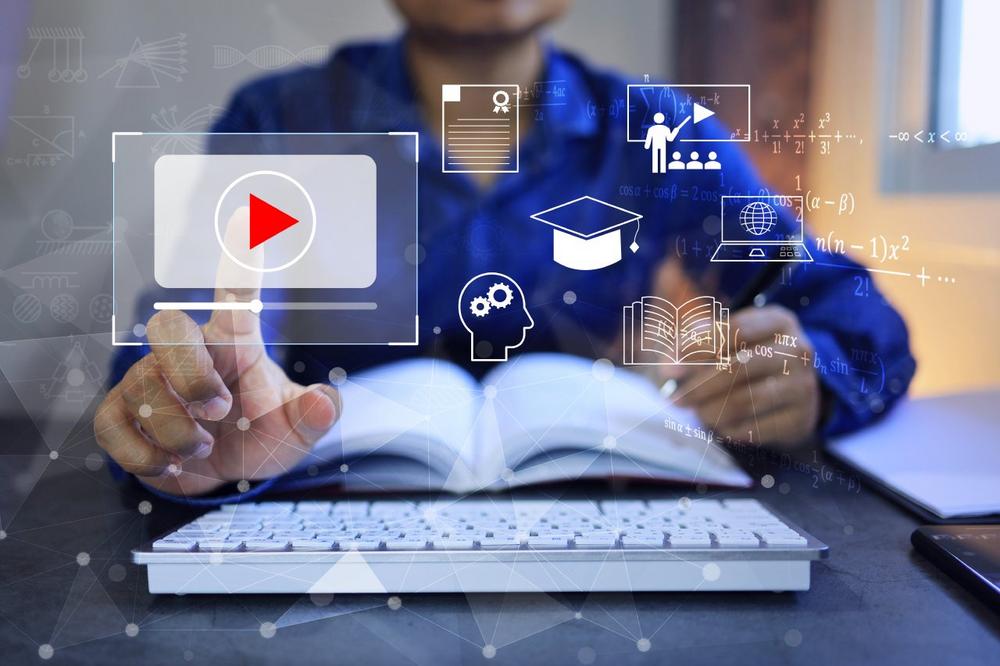Artificial intelligence in the education system

Breaking News:
Sonntag, Nov 17, 2024

The webinar itself shows the networking opportunities offered by digital technologies. The spotlight on Science was led and moderated by Prof. Dr. Helmut Krcmar, Delegate Officer of the President for the overall development of the TUM Campus Heilbronn who joined the event from the UN climate change conference COP28 in Dubai. Dr. Lulu Shi and Dr. Fabian Stephany participated from England from the host Oxford University and Stephan Krusche, Professor of Software Engineering at TUM Campus Heilbronn, reported from Germany.
Is the technology hype in education over?
Lulu Shi began by addressing two of her research topics: the debate surrounding educational technologies and the actual use of these technologies. One of the scientist’s surprising findings was that the public debate is strongly influenced by the providers themselves, i.e. the technology companies. User criticism, on the other hand, focuses on data protection issues and not on data collection and analysis. Her media survey shows that there are two main topics of discussion in the media in relation to educational technologies: social inequality and privacy or data ethics.
During the pandemic, there was a real hype about the use of educational technologies, but now interest has decreased again, says Shi. Her conclusion: "This picture contradicts the public narrative that EdTech (= Educational Technology) is here to stay and is also the future." An analysis of the current and past use of educational apps also shows that apps that focus on measurement have gained more users than those that promote collaboration and connectivity.
Individual and fast
Prof. Dr. Stephan Krusche gave an insight into his research at TUM Campus Heilbronn: "We have developed a chatbot called Iris, which we use to improve communication with students and provide them with targeted support." The demand seems to be high. Since its launch in October, there have already been 6,500 interactions with Iris. Krusche’s aim is not to replace human tutors, but to give them more time for more important tasks.
In future, the chatbot will not only be used to communicate with students, but also to create exercises, automatically generate feedback and perform learning analytics. "The vision for the future is not just to have one exercise task for all students, but to have personalized tasks based on the interests, skills and individual profile of each student," says Krusche. In this way, exercises with different levels of difficulty can be created that are geared towards students‘ abilities and thus enable individualized learning.
Valuable skills
Dr. Fabian Stephany from the Oxford Internet Institute broadened the view to the general labor market. His research shows a development towards "skills-based hiring". This means that employers now place more value on specific skills than on formal education. A development that is being driven by increasing digitalization and global awareness of environmental issues, particularly in connection with the climate crisis. Stephany analyzed job advertisements on the British labor market from 2019 to 2022.
"We can’t look at technology in isolation. Technology requires a workforce with specific skills. Without skills, technology cannot be developed, applied, maintained, advanced and regulated," said Stephany. The scientist emphasized the close link between technology and skills, with new technologies such as artificial intelligence (AI) always requiring changes in the skills of the workforce. Adapting the education system would be difficult to keep pace with this development.
With this successful bridge from the classroom to the workplace, the short digital window into the world of research ended. The good news: it will not be the last OII / TUM Heilbronn webinar, with more already planned for 2024.
Die TUM Campus Heilbronn gGmbH
Bildungscampus 2
74076 Heilbronn
Telefon: +49 (0) 7131 264180
Telefax: +49 (7131) 645636-27
https://www.chn.tum.de/de
![]()